7 Tips on Growing Weed on a Balcony
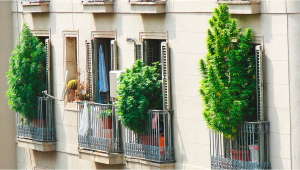
- 1. Choosing the seeds
- 2. Selecting the right spot
- 3. Check for the light source
- 4. Pot sizes and growing mediums
- 5. Starting at the perfect timing
- 6. Train your plants and manipulate their size
- 7. Be a present plant parent
- 8. Try to mask all of those fragrances and aromas
- 9. Growing weed on a balcony faqs
- 10. In conclusion
Things aren't always perfect in this life, but things not being perfect should never be the reason to stop us from doing anything. Would you stop baking a cake if there's an ingredient missing? Most would try to find a way to go on. Well, the same happens with growing cannabis seeds. When a person is determined to grow their own weed plants, there is nothing that could stop him or her from doing it. And while not everyone has a big outdoor field or garden, or a spare room that seems ideal for setting up an indoor grow room, this doesn't stop us either, there is always a way.
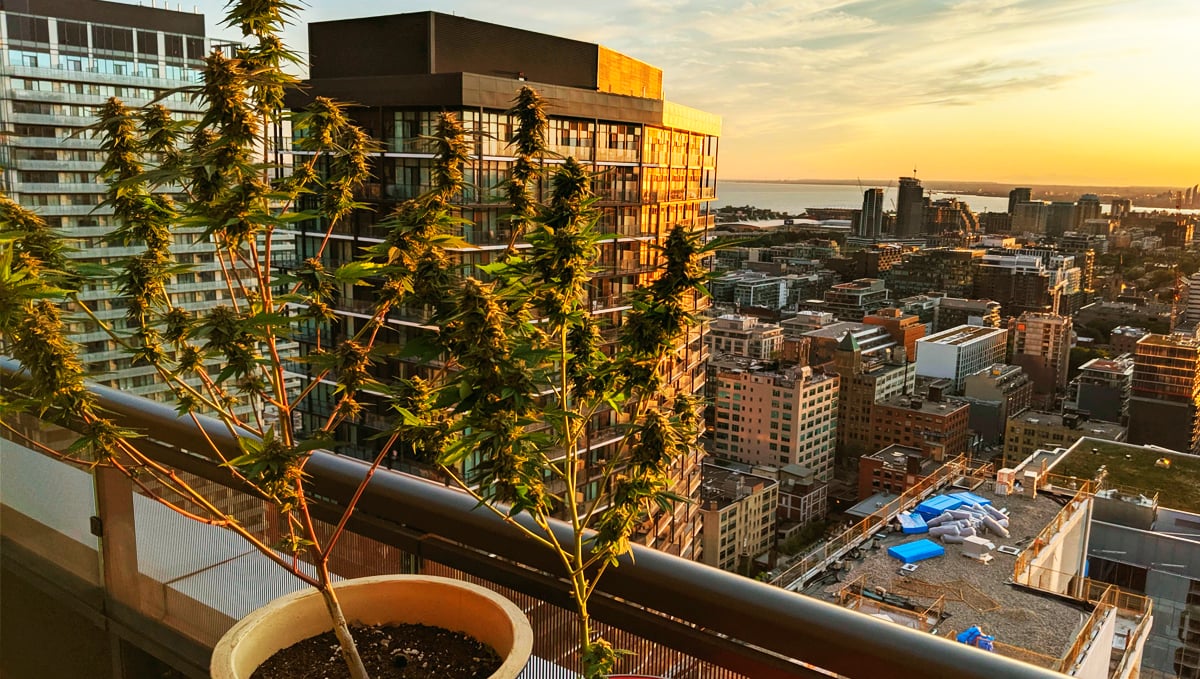
Growing marijuana on a balcony, for example, is a completely competent option, especially great for those living in a flat in big cities. The main things to check before growing weed on a balcony are:
- Light source;
- Space;
- Discretion;
- Growing medium;
- And the type of strains.
Let's find everything there is to know about growing weed on a balcony.
1. Choosing The Seeds
Before you start buying your growing gear you'll need to choose the seeds, and in order to do so, you'll need to take a look at your future grow space and try to make out its qualities. How much sun comes through your balcony? For how many hours? Is the weather rather hot or cold? It's questions like these that will help choose the right strains. Autoflowers will be easier to grow, adapting easily to most growing conditions, and rarely failing to grow. Photoperiodics, in the meantime, are quite stubborn when it comes to light so make sure you can meet their expectations.
But what does this mean? Well, as the name suggests, photoperiodics means they depend on the light cycle to trigger flowering, this means you will have to plan ahead or you run the risk of having 2-meter tall plants on your balcony. On the other side, autoflowers depend on their age rather than the light cycle which makes them the best option if you’re looking to grow top-quality weed on your balcony without attracting unwanted attention. The season of the year is another vital factor. When you find yourself in a rather warm climate we suggest going for Sativa-dominant strains, which are more used to hot or tropical weathers. If the climate is rather harsher and colder, then Indica strains will likely work better.
2. Selecting The Right Spot
What is the right spot? Ideally, it's one where your plants will have enough space to grow and express themselves, one where they can have access to natural light, and last but not least, one where you can hide them from any nosy neighbors. The amount of space you have will also help in choosing the type of strain. Indicas for their part tend to be smaller and chunkier than Sativas, which grow more upward than sideways.
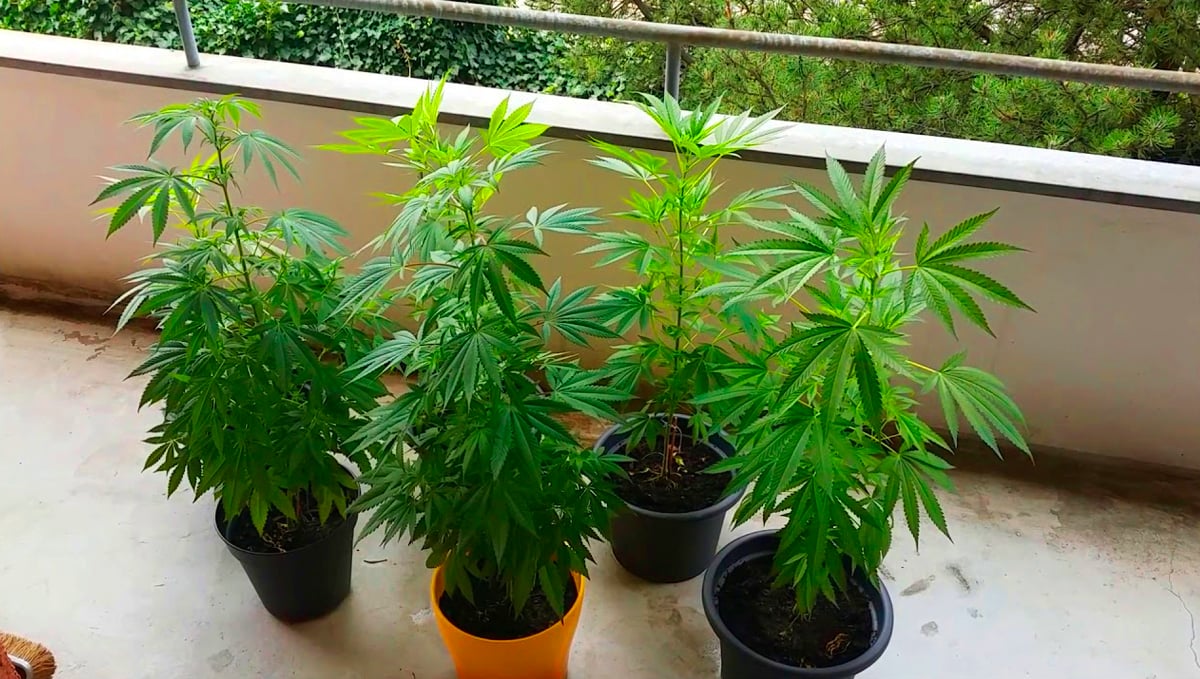
If you have a bigger space, this means you'll be able to grow your marijuana in bigger pots, which allows the plants more freedom to develop their roots and grow larger. Lastly, placing your cannabis plants next to other plants is a great idea, especially if surrounded by not-so-cool neighbors. Disguising your cannabis plants with some decorative plants and setting an extra curtain could be the perfect solution.
But how do you identify the right spot? Well, all you need to do is go to your balcony or spot you’re planning on growing during different hours of the day, this will allow you to know precisely the conditions throughout the day, and most importantly, the amount of light your plants will get during the morning, afternoon and evening. This will give you an idea of the result you will be able to get, as more light equals more yields and better quality. Always remember that your plants should get direct sunlight!
3. Check For The Light Source
As mentioned above, cannabis plants need direct sunlight, which means that you should be able to see the sun from the place your plants are growing. This method is not that precise, but as long as you can see the sun and ‘feel’ it, your plants will too. To guarantee you have chosen the perfect spot on your balcony, make sure you pay special attention to the light source and the amount of light your plants will be receiving. Keeping in mind that cannabis plants are infatuated with sunlight, try to place them on the sunniest balcony you can find at your place. However, you'll need to check first what type of seeds you're getting when you consider light. Photoperiodic cannabis plants require plenty of light for most of the day, of which ideally 5-6 hours come from direct sunlight, and complete darkness when night time comes.
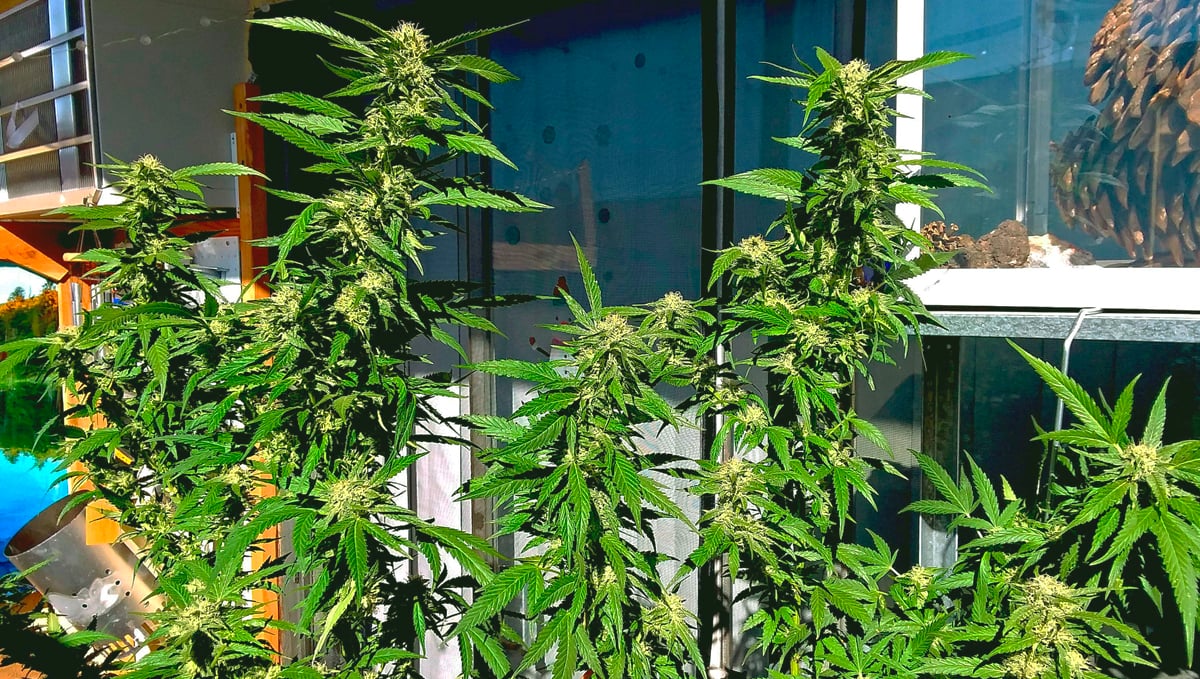
Autoflowering cannabis plants, on the other hand, grow independently of the amounts of light they receive, although the more the merrier, and the bigger the plant will be. If there is any lightbulb aiming directly at your plants during nighttime, you might want to get a curtain to cover it.
4. Pot Sizes And Growing Mediums
Growing weed plants on a balcony means you'll definitely need to purchase some pots and a saucer to catch excess water. It's important not to underestimate the saucer part, which might sound not so necessary but it is in fact. Another important part about pot sizes is that the pot size can ultimately dictate plant size, and when growing on a balcony, you don’t always want your plant to grow up to 200cm so remember to choose the pot size based on the desired size. With autoflowers, a 12-liter pot will allow them to grow to their maximum potential which is around 150cm so if you’re looking to grow 60-90cm autos, go for 8-liter pots. As for photoperiods, this also works but remember that photoperiods will grow until they receive 12 hours of darkness to start flowering so with photos this won’t work, so make sure to plan ahead in order to give your plants around 4-5 weeks of growth before the light cycle changes and they start flowering. When we grow marijuana what we look for is the best conditions for the plant, which includes tidiness and cleanliness. Therefore, maintaining your weed garden polished is a basic part of your cultivation routine. By keeping everything clean you'll be able to avoid pests and contaminations at least as far as your hands can reach.
Saucers are your best friends to get rid of old, dirty, and unwanted water, so definitely get a couple of them. Your plant's growing medium is another vital aspect that will definitely influence the final results. When we grow directly on ground soil, cannabis plants have access to unlimited nutrients, and the capacity to extend their roots as far as they need to get them. Growing weed on a balcony doesn't resemble this case at all. Therefore, in order to ensure your plants are well-fed and nurtured, we suggest you get high-quality soil to make up for the deficiencies of growing in pots. The ideal growing medium should be organic, with good draining and air circulation, such as coco coir; it should include worm castings, bat guano and other fertilizers; and rocks/stones for extra drainage. We know choosing soils isn't exactly easy, especially when they all look quite the same to us. As a general rule, try to go for soils dark in color and with a loose, rich texture. Usually, high-quality soil comes with the necessary ingredients, like composted forest humus, perlite, worm castings, fish/bone/crab meal, kelp, etc, etc. The ideal balance for planting is 80% soil and 20% worm castings, with a layer of stones at the bottom and some bat guano and fertilizers on top.
5. Starting At The Perfect Timing
When we grow cannabis outdoors or on a balcony, the timing in which we start planting is essential. The perfect time of the year to start planting is spring, so set alarms, mark it on your calendar, or whatever works to remind you to germinate your seeds in time.
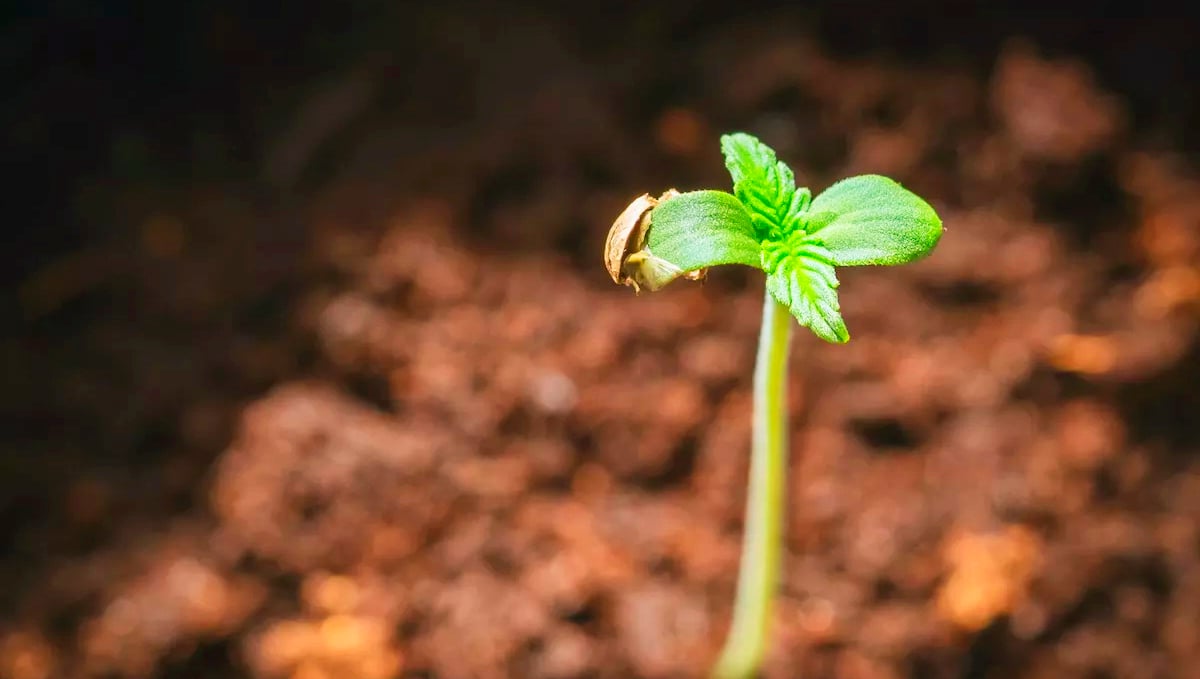
Actually, a couple of days prior to the arrival of the spring is the ultimately perfect germination time. This way, you'll earn some extra time for your plants to grow and fully develop. If the weather is still quite chilly by the end of winter or the start of spring, using some extra led lights during the evenings isn't a bad idea to give your babies some extra support.
6. Train Your Plants And Manipulate Their Size
When your balcony space you're growing your weed plants in is limited, or if you need to keep the operation low-key for some reason, then applying some training methods on your plants to keep their size small and controlled is the answer. The best time to start pruning your plants is after they're already comfortable in the vegetative stage, where the plant grows its build and structure to hold the buds later.
Usually, balcony weed plants should be short and dense. To achieve this you'll need to train the plants to grow sideways instead of upward. To do this, you'll have to trim the plant’s apex, the top sprout, down.This encourages the plant to grow more leaves below the cut, pushing it to get bushier instead of taller. Continue to trim your plants regularly throughout the vegetative phase to control their size along the growing process.
7. Be A Present Plant Parent
Don't expect your plants to bring outstanding rewards if you're not willing to take care of them just as outstandingly. This means that if what you're aiming for is premium-quality results you'll have to work for it just as much. When storms approach, take care of strong winds, even more, if you're living at heights, which could break your plants' stems. At the same time, long periods of rain also stress your plants. Beware of any chances of your soil becoming supersaturated with water by pulling your plant inside, when possible, in case of storms. No one wants to come home and find their plants with mold or bud rot, so make everything in your reach to avoid this.
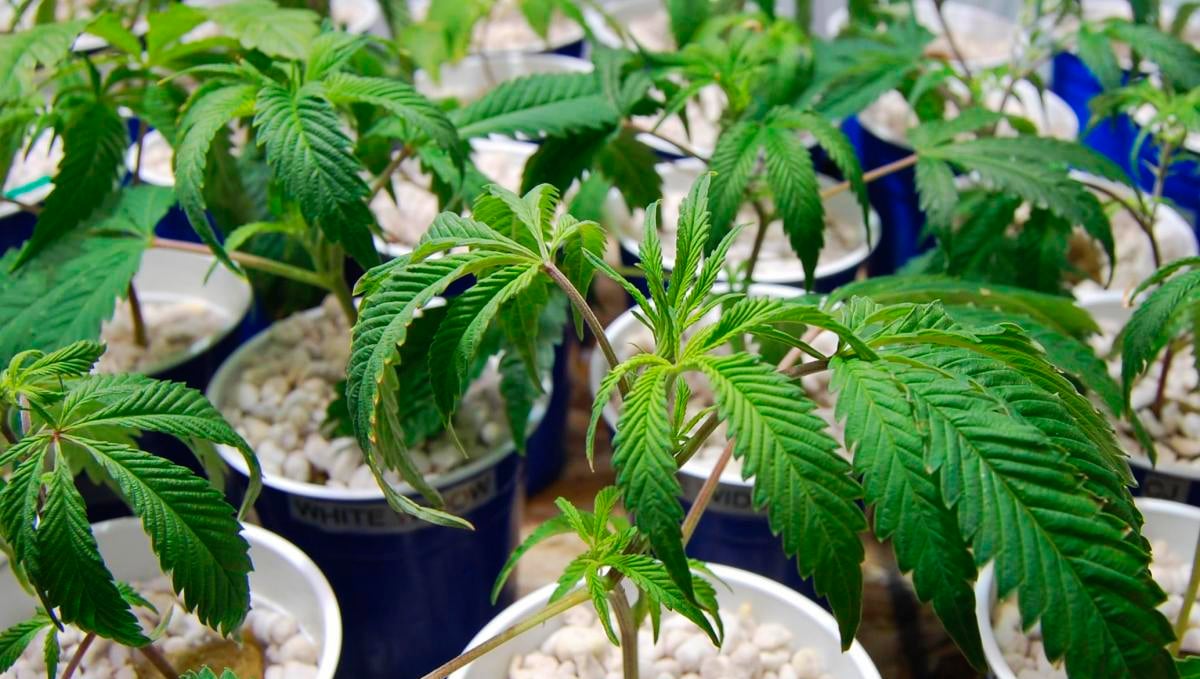
When it comes to the peak days of summer heat, take into account how 'thirsty' your plants might be. They can drink water very fast so try not to forget to water your plants, especially during extremely hot days. Since prevention is the best way, get some bug-repellent companion plants and you should be able to rest peacefully at night. The best companion plants include:
| Plant | Use |
|---|---|
| Basil | Thrips, beetles, aphids, and flies repellent. |
| Marigold | Bugs prefer it over weed, works perfectly as a distraction. |
| Beans | Fix nitrogen from the air and introduce it to the soil. |
| Garlic | Fungicide, pest-repellent. |
| Peppermint | Smell disguiser; ants, fleas, aphids, and flea beetles repellent. |
| Petunias | Squash bugs, beetles, and aphids repellent. |
Lastly, check on your plants in detail on a daily basis to look out for pests. No matter where you are planting, outdoors, indoors, or on your balcony, pests are always a threat we want to avoid.
8. Try to Mask all of Those Fragrances and Aromas
It is no big secret that cannabis is a stinky old plant, especially with the new age genetics. Breeders have, for a long time now, been selectively cultivating weed to enhance certain genetic traits that we find attractive, chief among these being smell and taste.
One of the biggest forward steps in the last few decades in weed genetics is the level of terpenes that are found in new school strains. Terpenes are naturally occurring compounds that can be found in all kinds of plants, and they give those characteristic smells to your weed. You have heard of essential oils, right? Yeah, terpenes are the main building blocks of those, and boy oh boy are they pungent. Because terpenes – and therefore smell - are so heavily featured in cannabis nowadays, you will want to be extra careful when it comes to masking those delicious aromas. Now, you may be a few weeks into a balcony grow scenario and think - "Hey, my plants hardly smell at all. What's up?".
Well, you just wait! The vast majority of the terpenes are produced during the flowering stage, and terp production ramps up considerably in the last 5 or so weeks. In the last month, the amount of pure, unadulterated stank that can (and will) drift off even one small ganga plant can be pretty surprising to new growers, even outdoors where there is a range of other natural aromas to mask this deliciousness. So, you will most likely want to employ some techniques to help keep those nosey neighbors out of your business.
The best way to do this is with a carbon filter, or “smell muffler” as they are sometimes known. These work by trapping and filtering the air that is drawn out of your grow tent or enclosed balcony area, but let's be honest - not many of you are going to be a tent or enclosed balcony growing. So, what to do?
Mask that sh**! Instead of trying to scrub the air clean with a carbon filter, go the opposite way - use companion plants. By filling your balcony with a range of plant options that have more powerful aromas than your pot, you can effectively mask the smell of your weed. These companions should be chosen carefully and not just for their smell but also for their beneficial relationship with cannabis. There is a huge of range of pants that will not only smell great but also encourage beneficial insects into your balcony garden which can help protect your weed from pest infestations.
A few good options are jasmine, lavender, rosemary, basil, marigold, coriander, mints, peppermint, cerastium, sunflowers, and red clover. Not only do these all have strong aromas that will blend in with the smell of your weed to create a much more pleasant overall aroma, but they are also very helpful to cannabis plants in terms of pest control. And then there is the Japanese maple tree. These small maples are gorgeous to look at, and while they do not mask any smell or increase the likelihood of beneficial insects joining the garden, the leaf structure is quite similar to weed, which can help hide your crop.
If you don't want to use companion plants, then you can always try to mask the smell with something techier. There are a number of odor control products on the market, from candles to sprays, that can help keep your grow smell-free. Careful though, some of these products may have a negative effect on your plants, so it is always best to do your research before investing in anything. In general, we do not really recommend going down this path. Whatever you do, just make sure to take care of the smells, so that your neighbors never need to know about it! That way you can enjoy the fruits of your labor without having any unwanted visitors.
9. Growing Weed on a Balcony FAQs
Is it legal to grow weed on your balcony?
The legality of growing weed on your balcony depends on a few factors, including the laws in your specific state or country. In many areas where cannabis cultivation is legal for recreational users, growing outdoors in an area that can be seen or accessed by the general public is a big no-no. Make sure to check your local laws before you attempt to cultivate cannabis on your balcony.
Will my neighbors be able to smell the weed?
Yes, they may be able to. Depending on the size of your balcony, the air circulation in your area, how much you're growing, and how high off street level you are - the passersby could well get a whiff. To combat this, use companion plants, carbon filters, or odor-masking products to protect your privacy.
Do I need a grow tent?
No, you don't necessarily need a grow tent. You can use other covers or screens to protect your plants from the elements, as well as to provide some additional privacy. However, a grow tent can give you increased control over the environment your plants are living in, and help you achieve better yields.
What sort of soil should I use?
Good-quality potting soil is usually a safe option as a base for a cannabis soil mix, but they are usually a little too heavy on nutrients to use by themselves, especially for seedlings. For your best chance at cultivation success, grab one of the many cannabis-specific soil (or coco-coir) blends on the market, or make your own. These typically come pre-loaded with all the necessary minerals and nutrients for optimal growth.
10. In Conclusion
If there's something we've learned is that where there is willpower there are solutions. And one-second lesson we've learned is that weed plants adapt to different growing conditions like chameleons. Growing weed plants on a balcony is just as sustainable as doing it any other way, it just takes putting some more thought into it to make sure nothing gets out of hand and you should expect to harvest some nice buds in no time. Enjoy growing your weed plants on your balcony! It'll definitely be a funny future anecdote.









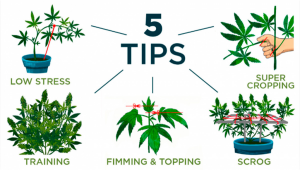
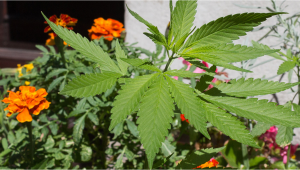
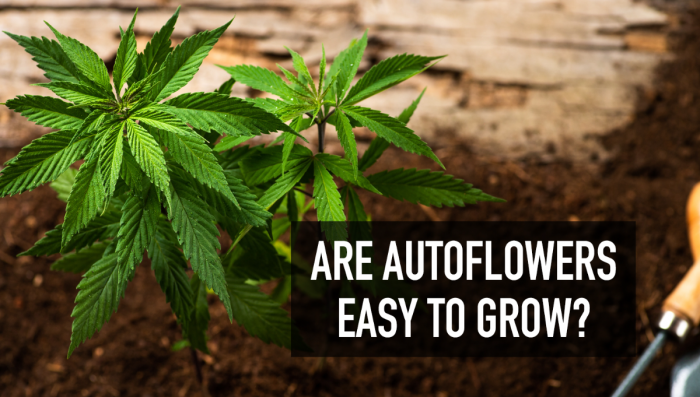

Comments